- YouTube
- TikTok
A Better Tomorrow Through Debate
Former president of Poland speaks at OU’s Varner Vitality lecture
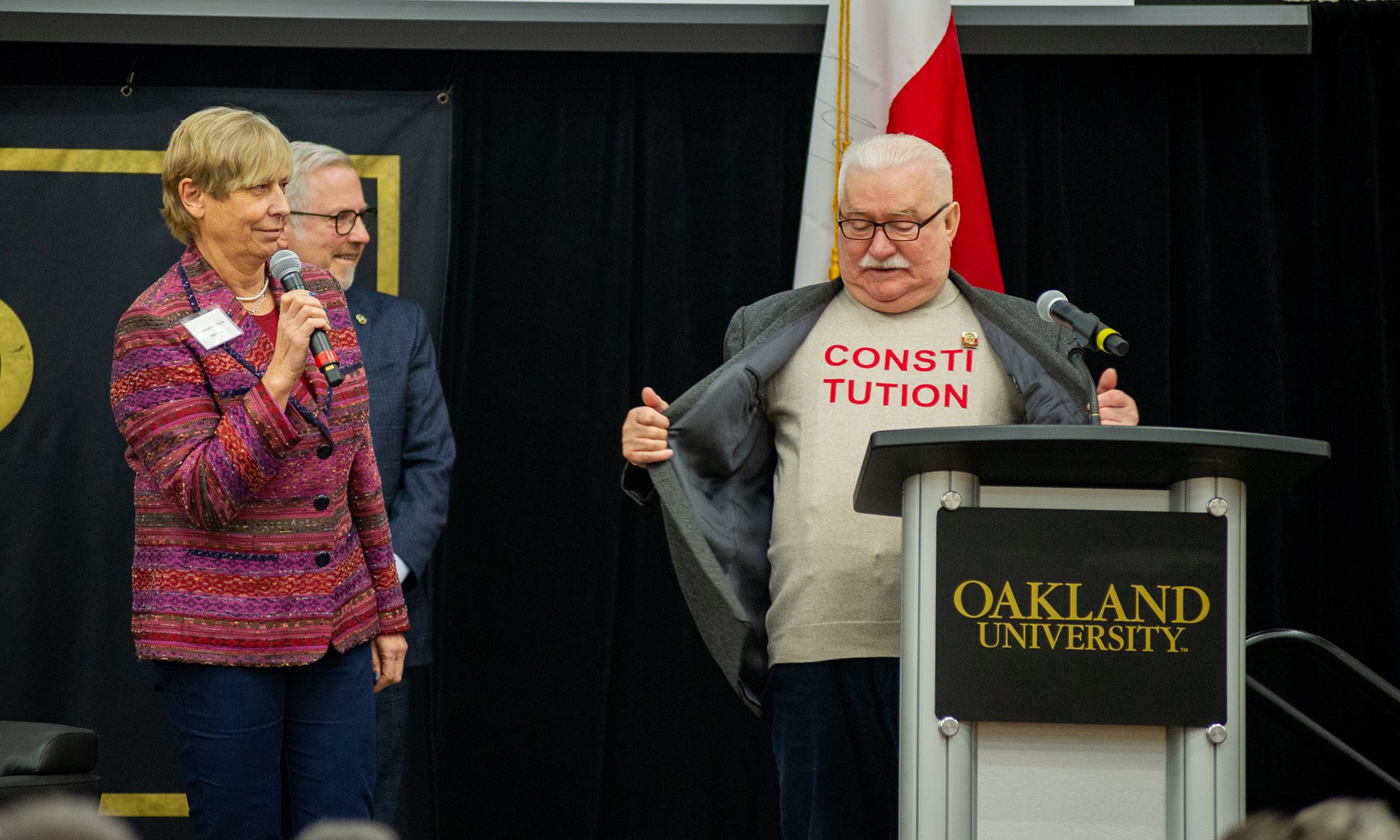
Lech Wałęsa showing off his shirt that reads "Constitution". (Photo Credit: John McTaggart)
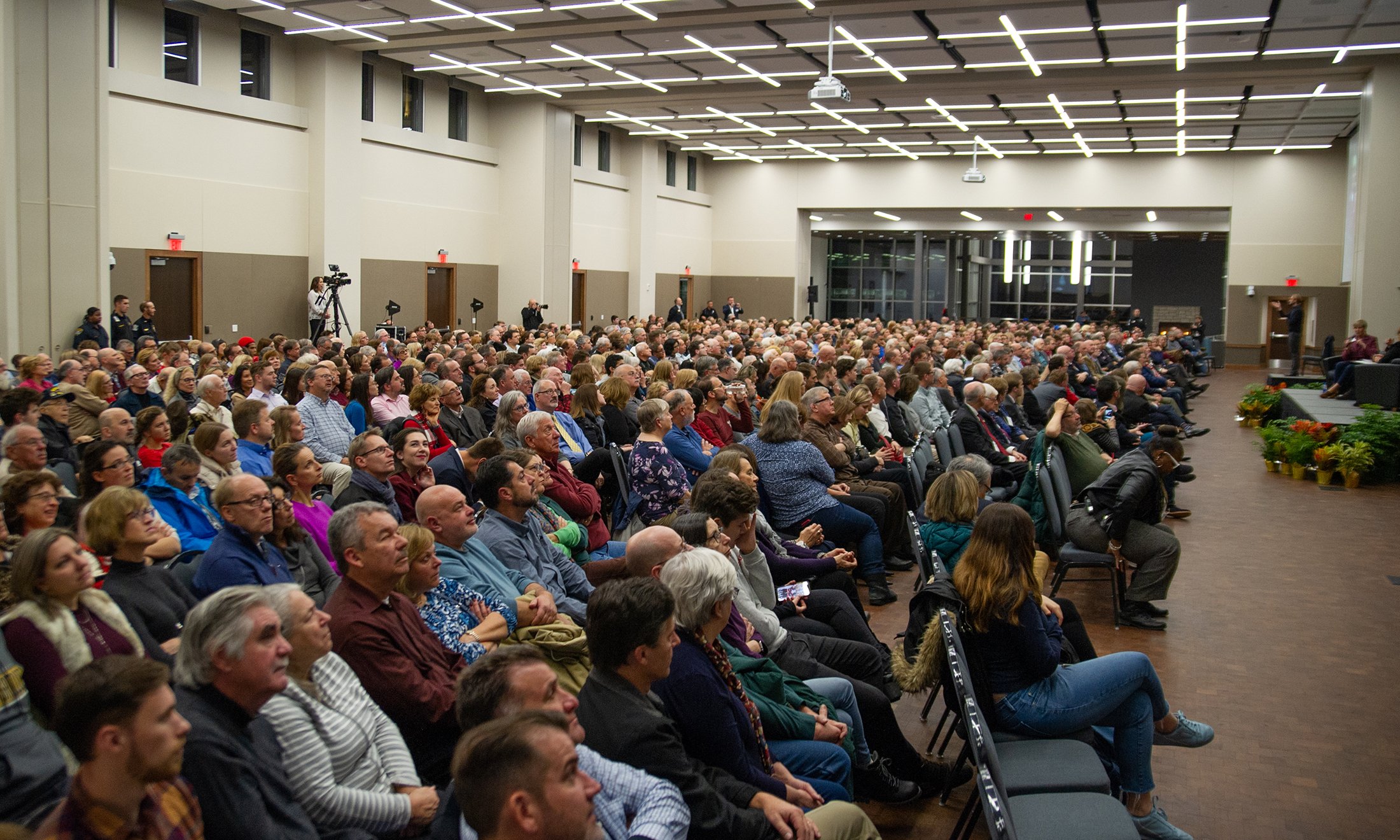
The crowd attending Lech Wałęsa's talk. (Photo Credit: John McTaggart)
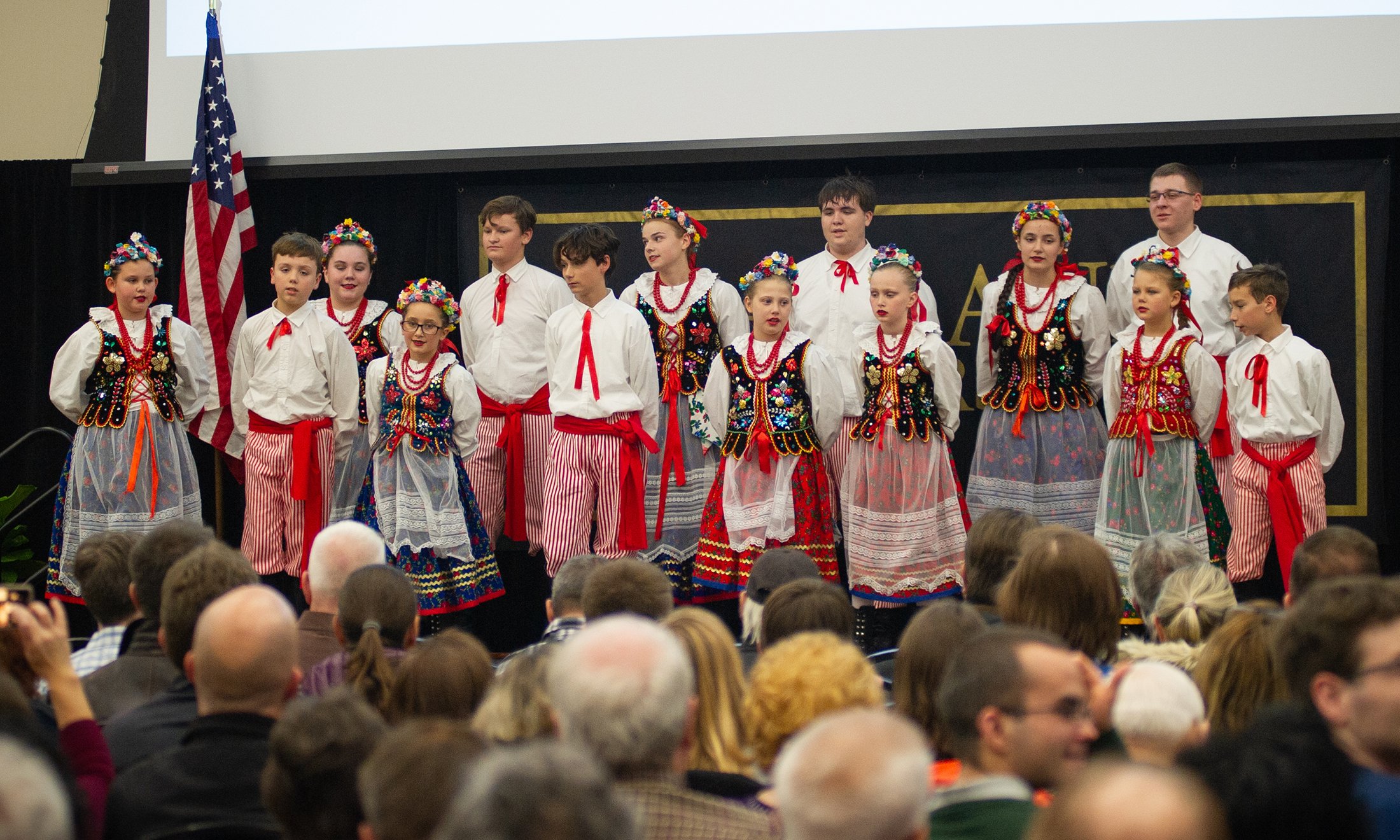
A group of children wearing traditional Polish outfits. (Photo Credit: John McTaggart)
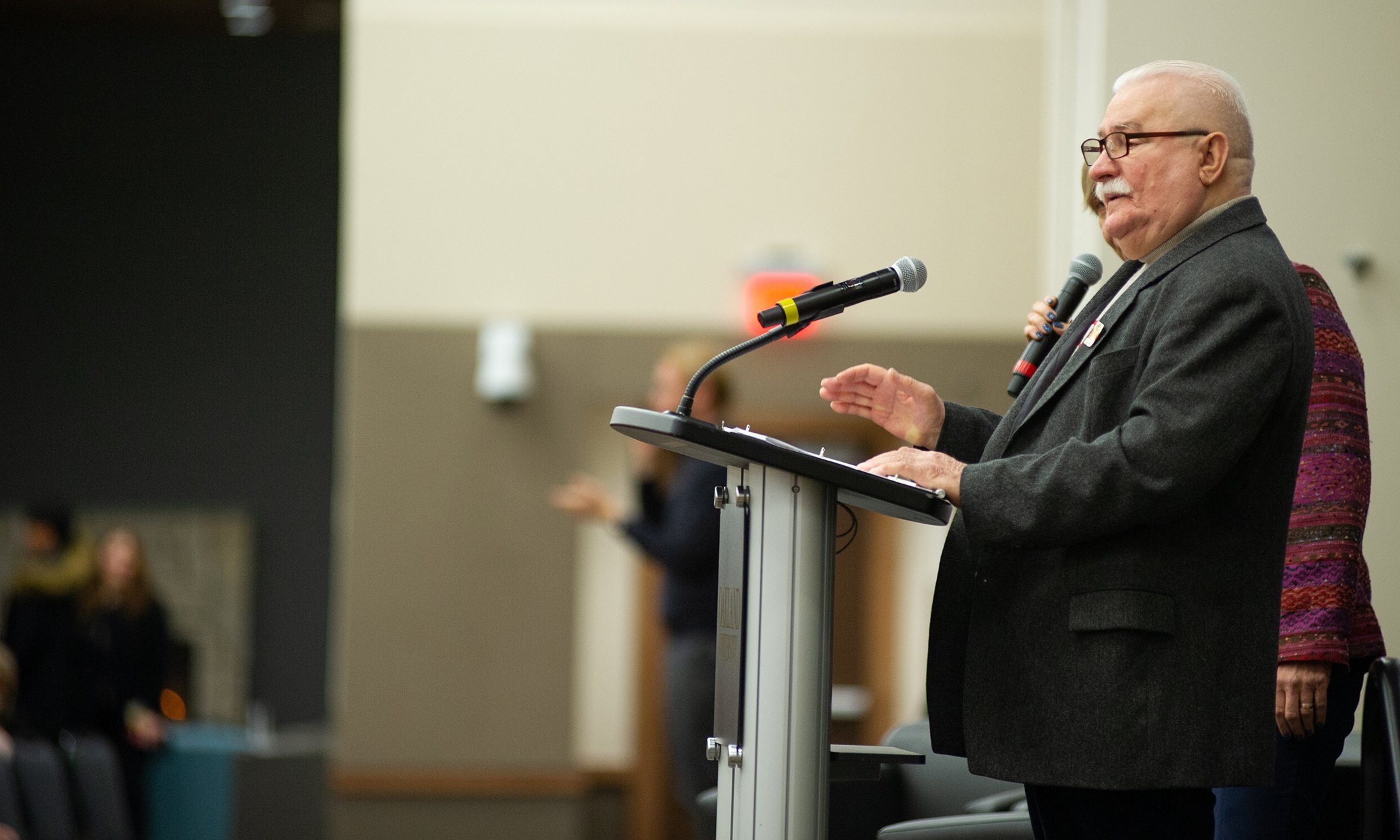
Lech Wałęsa speaking at a podium. (Photo Credit: John McTaggart)
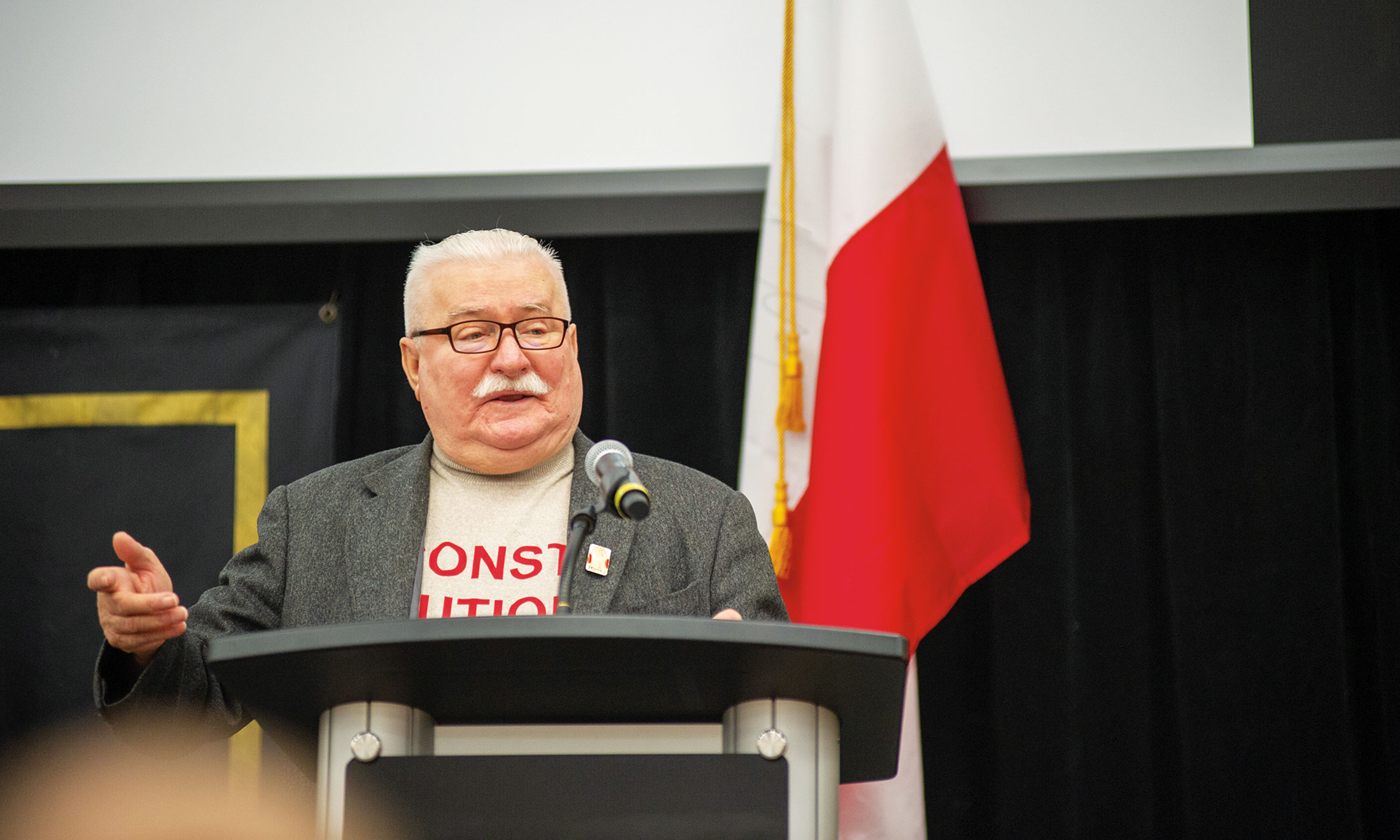
Lech Wałęsa speaking at a podium. (Photo Credit: John McTaggart)
His notoriety comes from the past, but Lech Wałęsa looks to the future for a better world.
Wałęsa, a former electrician, has been in the global spotlight as a politician, trade-union organizer, philanthropist and human-rights activist. He was also the featured speaker at Oakland University’s Varner Vitality lecture last November.
The former president of Poland and 1983 Nobel Peace Prize recipient, Wałęsa was a key organizer of the 1980 Lenin Shipyard strike in Gdańsk, Poland. There, workers organized against Poland’s communist regime and ultimately succeeded in establishing Solidarity (Solidarność), the Soviet bloc’s first independent trade union. The Solidarity movement is credited as a major step in the ultimate fall of communism in Eastern Europe. Wałęsa was elected president of Poland in 1990 and during his tenure oversaw the country’s transition from communism to a free-market democracy.
The focus of his Varner Vitality presentation was to address the 30th anniversary of the fall of the Berlin Wall. Speaking through interpreter Magda Winska, Wałęsa answered questions from Carol Cain, columnist for the Detroit Free Press and host of CBS-TV62's television program Michigan Matters. Questions came from students and community members and were submitted prior to the event. He also spoke to area reporters prior to his presentation.
Much of the message Wałęsa brought to campus focused on the need to create better political and economic solutions for today.
“My role is to encourage debate; to come up with topics that need debating,” he explains to reporters during his visit. “We have very deep divisions that hamper the progress of the world… We need to construct something else, to replace the old world with the divisions. And we’re not very good at doing that.”
Wałęsa contends that the fall of communism was inevitable, but that democracy is not fully living up to the challenges of the modern world, leaving a gap between an old era of the Cold War and a new era of order.
“We’re in between the two,” Wałęsa states. “Which I refer to as the era of the word, of debate.” And while Wałęsa stated that new structures should be democratic, improved systems of government and economy are called for.
“Certainly we need to keep the free market economy as an element of this new economic system,” Wałęsa continues. “But in the old capitalism, there was so much rivalry. One country competed against the other, it was like a rat’s race… The United States should be the leader to the world in implementing new solutions.”
Wałęsa has ideas on how solutions can be found. His model of debate involves a “triangle” of constituents who use technology to model economic and social solutions. The triangle is made up of laborer’s and social organizations on one side, business owners on the second, and local and federal governments on the third. He believes that by entering the demands of the three into a modeling program, solutions can be created.
“This will be totally emotionless, without any strikes, without any fights. All coolly calculated to the best answers possible,” he says.
Approximately 1,000 people attended the evening’s lecture. Wałęsa was Oakland University’s 13th speaker in the Varner Vitality series, sponsored by the Division of Academic Affairs and the Office of the Provost.
“Bringing in Lech Wałęsa to campus continues a strong tradition of great Varner Vitality Series speakers,” says Senior Vice President for Academic Affairs and Provost James Lentini. “His perspective on the fall of the Berlin Wall, and sharing stories of his personal struggles, should remind us all of the freedoms and liberties we sometimes take for granted in our country.”
This year’s event was held in conjunction with Oakland University’s Center for Civic Engagement. According to the center’s director and professor of political science Dave Dulio, the event dovetails perfectly into the center’s main mission.
“It is a good thing for OU and the surrounding community any time we can hear from someone who shaped world history,” Dulio says. “The visit from President Wałęsa helps the Center for Civic Engagement work toward our goal of making OU known as a convener of conversations about issues of public importance. We want to help the community better understand the people, policies and politics that shape our state, nation, and world. Events like this certainly keep us on that path.”
The event was also sponsored by The Polish-American Credit Union.
Explore past speakers of Oakland University’s Varner Vitality Series.


 June 23, 2020
June 23, 2020 By Laura Phillips
By Laura Phillips

